In this article, we’ll focus on the best ways to get online – fast and free. You don’t need to be computer savvy to follow these recommendations, so jump in and build some online leads!

This is the second article in our series for business owners and marketers, titled, “Build Your Business.” If you haven’t read part one or the overview, start there!
Why You Need an Online Presence
Your small business comes with a daunting list of challenges. The biggest hurdle you need to clear is branding your business and getting your name in front of your potential customers.
You need to get your business online.
No matter how your potential customers discover you, very few are willing to sign a contract with you for services until they research your business online. If you haven’t put in the work to establish your digital presence, you’re losing leads. Every minute you “save” by ignoring this critical process costs you tenfold in lost business.
Fortunately, getting your business online isn’t as difficult as it used to be – regardless of your niche. Scalable solutions exist, and it only takes a few minutes to get started. While it takes time to establish yourself online properly, you can take the first step right now.
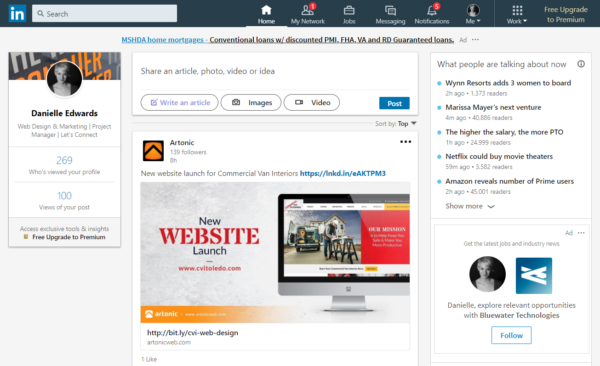
Social Media Platforms
There was a time when it was generally thought that social media was strictly for younger generations. That’s no longer true! Social media has become one of the best means to bridge the gap between business and customer. Your business needs to get involved – join the conversation!
Why Should My Business Use Social Media?
Don’t operate your business like you’re on an island. In a service-focused niche, your goal is to connect to as many people as possible. Social media gives you the tools to do so without much technical knowledge required. You can setup a business profile, fill out your details, add a couple of photos, and start talking to your community in minutes.
Each platform has unique traits, but they all give you a way to establish your brand online and let people find you. If you don’t have a website, they’re the best ways to start. If you do have a website, they’re an effective way to get visitors from their social media pages to your website.
Here are some of the most effective uses of social media:
Promote Your Sales
Sales and events are only successful when people know about them. Before the Internet, that meant expensive mailers or ineffective and time-consuming advertising. Think of your social media account as a billboard to everyone in your area. You can make one post with the details of your sale, then let your customers see and share the information.

It’s a quick and easy way to build attention and excitement for your offers – and most importantly, it’s free*!
*There are options for running ads and boosting your organic posts to reach a larger audience.
Social Media as Customer Service
There’s nothing more important than customer service for anyone working in a trade. Your skills and experience only matter if you have customers willing to hire you for the job. The best way to find new customers and keep existing ones is through quality customer service.
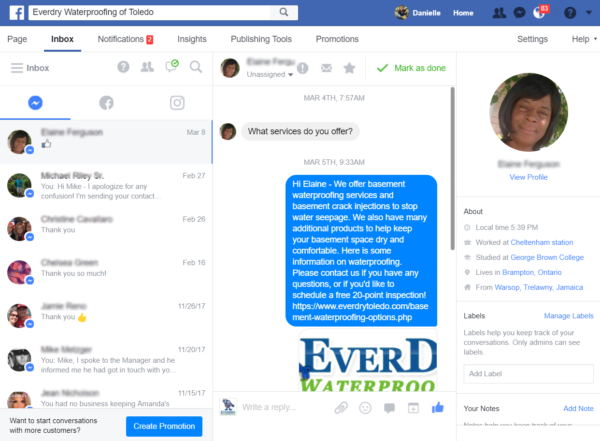
Social media gives you another tool to communicate with your current and potential clients. If they have questions or concerns, you can answer them one-on-one through direct messaging. You have the ability to interact with your customers in real-time – from their praises to their complaints. Use this information intelligently, and you can build your brand as a responsive, respectful contractor that people trust.
Build Your Brand
When you start your business, only close friends and contacts will know who you are. That’s why branding is critical. You need to clearly promote who you are, what you do, and why you do it better than your competitors.
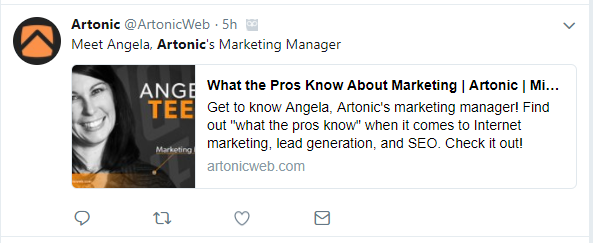
Your social profiles give you the opportunity to be unique. You can be fun and engaging or reserved and informational. Whichever route you take, use your platforms to promote your message and make it easy for potential clients to understand what you do.
The Top Social Media Platforms to Use
There are hundreds of options for social media platforms – but the important thing is to focus. Stick to the platforms that have an audience and only use the ones that make sense for the content you can produce. (Read: Social Media Best Practices & Posting Guidelines for Beginners.)
Userbase: Over 2 billion users and 50 million businesses active per month.
![]()
The quintessential social media platform. You know Facebook – as do its billions of monthly users. Once a hideout for college students, now the easiest way for you to put your name in front of thousands.
Facebook’s continued popularity stems from its ease of use and robust list of features. From business pages to ads, to newer features like instant messaging and even shopping, Facebook offers it all. You don’t need to take advantage of every feature to promote your business, but you should take care of the basics: building a business page.
You can fill out your page with your business name and relevant information. Include every detail you can. The more information available, the more likely you are to generate a qualified, solid lead.
Userbase: Over 500 million per month.

The platform for business professionals. LinkedIn lets you establish business connections and prove your expertise.
Networking is the biggest part of LinkedIn. Build connections in your industry and community. You never know who might have an important job coming soon. LinkedIn lets you stay close to those that might need your services.
Like Facebook, it has two outlets for self-promotion: your profile page and the newsfeed. To make the most of LinkedIn, you’ll want to utilize both. Build a robust profile that shows your history and expertise. Follow that up with sharing articles, either from industry experts or written by you, that tie in with your business’s ideals.
YouTube
Userbase: 1 billion active per month.

Only 9% of small businesses in the United States have a YouTube account. With the massive user base watching over five billion videos each day, it’s a disservice to ignore the YouTube platform when you have videos to share.
While commercials or advertisements are a common way to build your YouTube channel, the best content is helpful or entertaining. Nowadays, cooking videos and how-to guides make up a significant portion of YouTube’s traffic.
This is your chance to promote your brand and your expertise. Don’t think of educational videos as giving away your skills for free. Helpful videos are more likely to be shared. Exposure in your community builds trust, and that’s what pushes people over the fence to call you first.
Userbase: 68 million active per month.

Twitter makes it easy for busy business owners to communicate quickly. Due to the 140-character limit, your responses are sure to be succinct.
Savvy business owners that use social media for customer service find a lot of power in Twitter. Pay attention to direct messages and indirect mentions of your name. Respond as often as you can – to both compliments and criticism.
You don’t have to tweet all the time to make Twitter a strong platform for your business. As long as you engage with users regularly, you can keep a healthy Twitter presence. When you leave months between tweets or replies, customers won’t bother contacting you on the platform.
Use a Social Media Platform That Works for Your Business
Each platform is similar, but they all have unique features and user expectations. Facebook is well-rounded, but YouTube is focused on video content. Twitter allows you to communicate to followers quickly, but LinkedIn lets you foster real connections with other professionals in your area.
Nothing stops you from using them all. Just remember that a neglected social profile can make customers feel ignored. Pick a primary platform to use. Update it frequently. The fewer platforms you use, the easier it is to keep track.
Free Business Directories
The phone book isn’t the only place to list your contact information anymore. Online business directories are everywhere. Increase your exposure by listing your business on the ones that make sense.
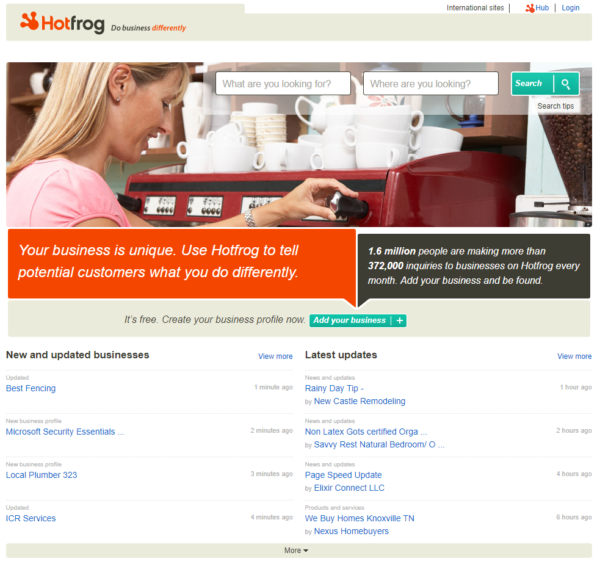
Why Use Business Directories?
Online business directories are similar to old phonebook and newspaper listings. They’re the easiest way to get your name and contact information to people searching for it. Not listed anywhere? They’ll skip you and find another option.
Most directories double as review sites. This is good news, because you want as many positive reviews as you can get. List your business or miss out on dozens of opportunities to build your online reputation.
Note: It is very important to keep your business information consistent across online directories.
Get Started with Directories & Review Sites
Don’t wait to work on your listings. Check to see if your business is already mentioned and claim it. If not, add your business manually. While there are thousands of directories or review sites, start with the most important ones:
Google My Business
Because Google is the primary search engine for users, Google My Business is naturally the first place you should go to list your business. It’s a trustworthy platform that comes with a huge benefit over other listings: the Google knowledge panel.
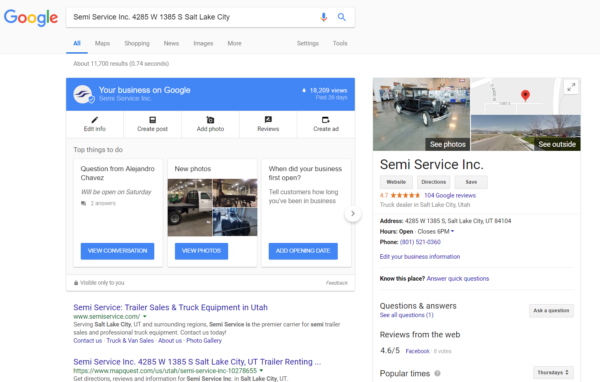
This is the panel that displays to the right of your search results when you look for a specific business. It contains a wealth of information, including:
- Name
- Address
- Phone Number
- Reviews
- Map Location
- Social Media Links
You can’t directly control everything that shows up in your knowledge panel, but you want it as detailed as possible. If someone is searching for your business, this is the first place they’ll look to get your information.
Yellow Pages
Phone books are gone, but the Yellow Pages are still here. Their online directory is quick and easy to setup. You can sort your business by category and include lots of details to improve your local visibility.
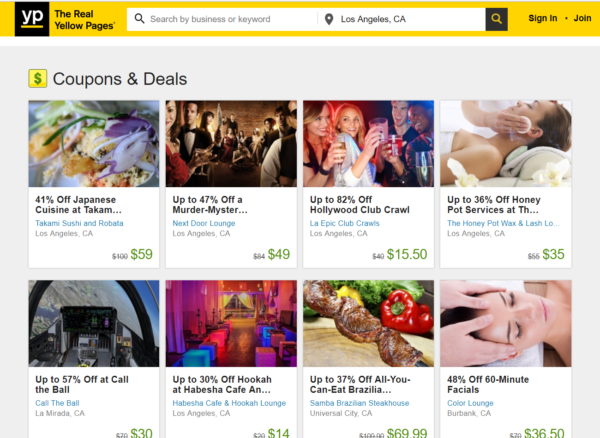
According to YP.com, they receive nearly 60 million visitors a month. Along with its trusted name, this free listing a great choice for any small business trying to establish themselves online.
Yelp
Online reviews are important – a fact that can’t be overstated. As the most popular website dedicated to business reviews, Yelp should be high on your list of directories on which to list yourself.
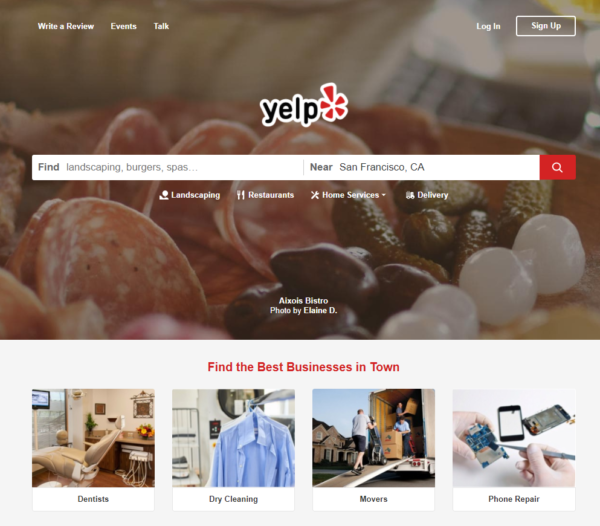
Your business could be added to Yelp at any time – even if you don’t add it. That means you could be getting positive or negative reviews without your knowledge. Because services are one of the most reviewed categories on Yelp, you should review the site to claim or add your business immediately.
Yelp is invaluable to owners that want to cement a reputation as reliable and honest. Once you start generating reviews, publicly respond to them – especially negative ones. Business owners that respond to their reviews are able to prove to future clients that they’re deeply invested in their quality of their reputation. (You may be interested in: Yelp Help: Combat Negative Reviews.)
BBB
Did you know you don’t need to pay for accreditation to be listed on the Better Business Bureau website? You may miss out on many of their features, but with the BBB’s history of generating immediate trust for businesses, it’s a tremendous help to get listed!
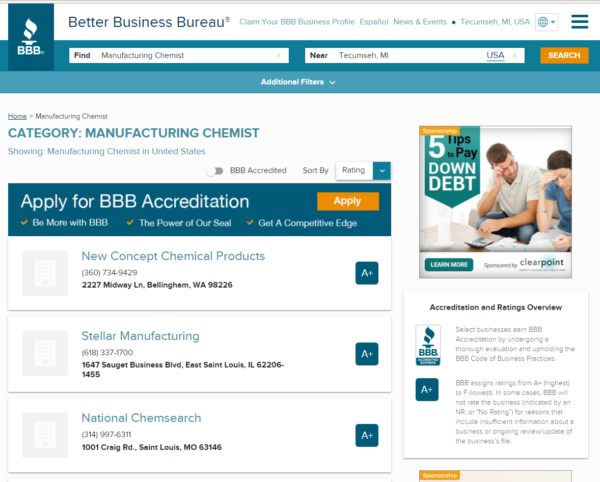
Merchant Circle
Designed for local businesses to help generate leads, Merchant Circle is a great way to make a splash in your community. Along with the traditional business directory features, Merchant Circle acts somewhat like a social media platform.
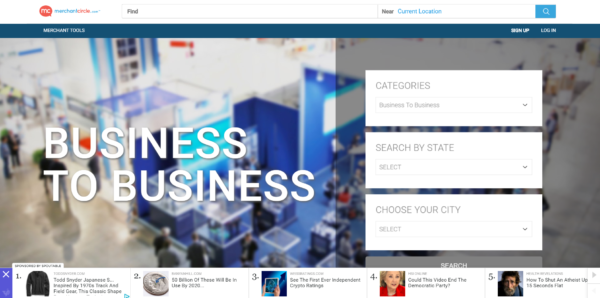
After you claim your business, you can write articles from your business, create coupons and communicate directly with other users. While it can’t compete with the popularity of the main social media platforms, it’s another tool in your arsenal for drumming up business.
Industry-Centered Directories
General directories are just the beginning. Don’t forget to add your business to industry-specific directories. Whether you’re a manufacturer or health professional, there’s likely a local or national directory just for your niche.
These industry directories help users pinpoint your area of work – and are another avenue to generate leads.
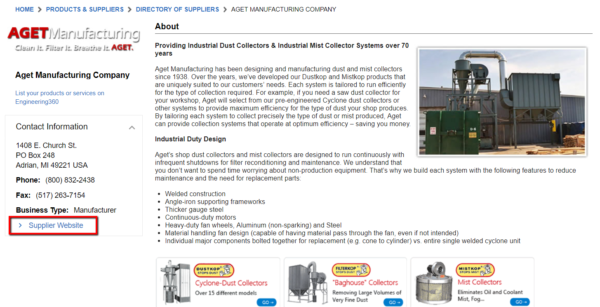
Free Links
The last major piece of the puzzle to get your business online is to build strong links. These are exactly what they sound like: other websites that use direct hyperlinks back to content on your website.
Why Use Free Links?
Links do two things for your business. First, they get visitors to your website. This is important because for new websites or businesses, few people will organically happen upon your name. Every link you build towards your website is extra traffic that can convert into a new client.
Secondly, they improve your search engine rankings by boosting your SEO, or search engine optimization. A link is like a vote for your website. Sites that generate a lot of links from relevant sources tend to place higher in Google search results. When you build links, you can climb to the first search engine results page where your exposure increases exponentially.
Find Free Links Online
Links need to be earned. It’s difficult to build the links you want, but it makes them worth more.
You don’t need to be an expert in SEO to build links – but it helps to be an expert in your field. Here are a few tried-and-true ways to improve your business’s link profile:
Business Directories & Review Sites
Business listings do more than help potential clients find you. They also have the added benefit of linking back to your website. That means every time you fill out your business details, you improve your website’s authority a little more.
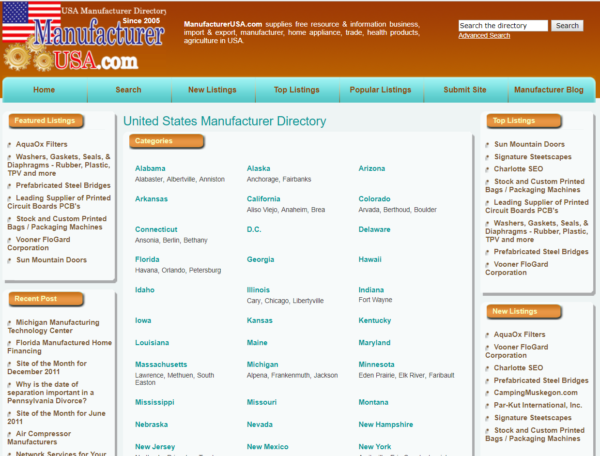
Citations aren’t always as strong as other link sources, but they add up. They’re easier to get and, if you’re using industry-related directories, they help Google’s bots understand your business better. Increased authority and more websites that link back to yours, work together to improve how your content ranks in search engines.
Write for Online Publications
Industry websites and publications rely on content. No matter how much they write, there’s never enough. If you can turn your expertise into a concise article, you can easily build links through sharing your content. This is known as “guest posting.”
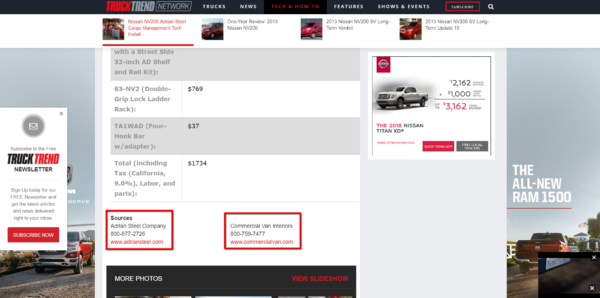
The best way to start guest posting is to contact publications in your industry that you already read. You know the content they release and you know they’re reputable. Ask if they’re willing to accept an article from an industry professional. If yes, work out the details and get writing!
Every publisher has different rules for how they handle outbound links. Some let you link to yourself in the article, others will include it in a small paragraph at the end. Follow their rules or you risk getting rejected and wasting time.
Make sure you write content that’s useful, not self-promotional. Great articles generate their own traffic; readers will investigate you or your business if they recognize you as a credible, helpful source.
Write a Business Blog & Publish It Yourself
You don’t have to guest post to build links. Build a blog on your website and write about what you know.

Fresh content that eases customer pain points will always lead to links. Write something educational. Or try being controversial. As long as you introduce new thoughts to the Internet, you will get noticed.
Discover Mentions of Your Business & Request a Link Back
Your business will likely get mentioned in the local press or other online communities. Search for your name and business name. If someone mentioned you, reach out to them. Ask if they would be willing to add a link to your website where they mentioned you.
Either you get a link and a new professional connection, or they say no. Nothing venture, nothing gained!
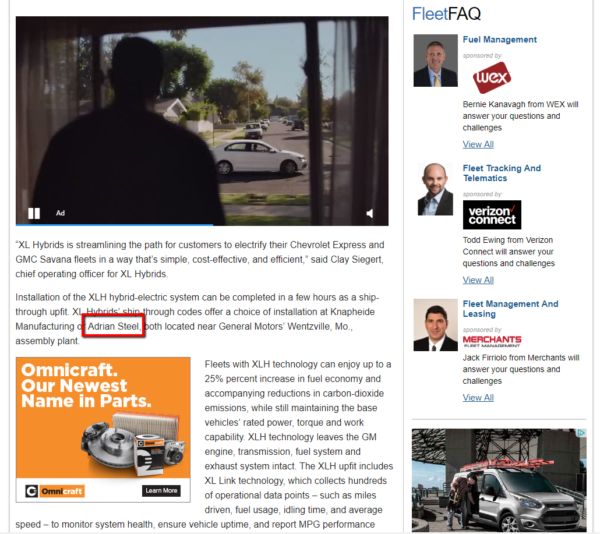
Link to Other Websites in Return for a Link Back
Other professionals and industries want links too. If you have a partnership or connection that makes sense, work out a deal for reciprocal links.
Relevancy is key. Don’t just link to anyone, and don’t ask for links if they don’t fit your industry. Links that look like spam aren’t just ineffective, Google can penalize your website.
Get Visitors to Your Website
For more marketing tips on how to get visitors to your website, check out our free e-book: How to Get More Website Traffic
Say Hello!
Give Artonic a call or email us if you’re interested in website design, development, or marketing.
Michigan, USA


